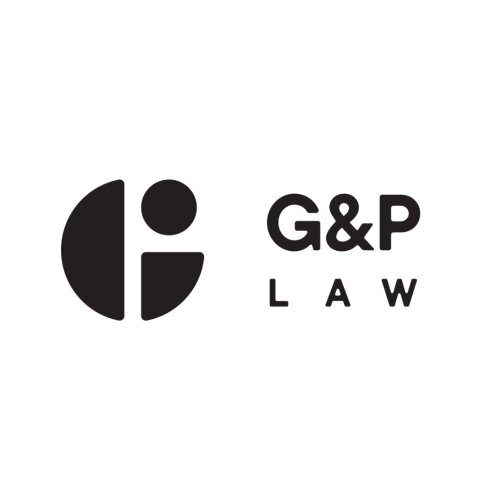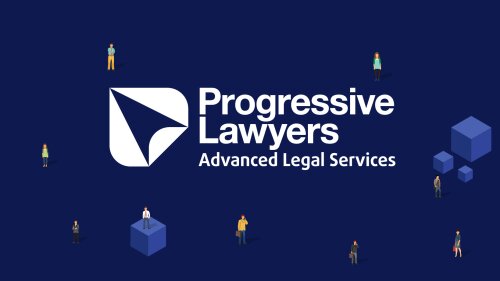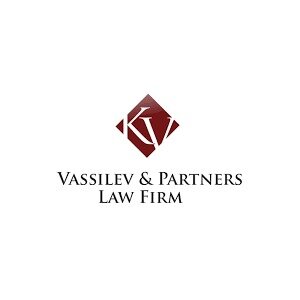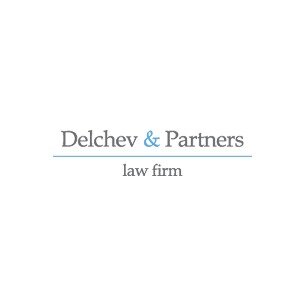Best Energy Regulatory Law Lawyers in Sofia
Share your needs with us, get contacted by law firms.
Free. Takes 2 min.
List of the best lawyers in Sofia, Bulgaria
About Energy Regulatory Law in Sofia, Bulgaria
Energy Regulatory Law in Sofia, Bulgaria, refers to the comprehensive set of legal rules and requirements governing the generation, transmission, distribution, and sale of energy. This legal field is shaped largely by both national and European Union energy policies, aiming to ensure the efficient, safe, and fair delivery of energy services. Regulations are designed to protect consumers, encourage competition, promote sustainable energy practices, and oversee compliance of market players-ranging from large energy companies to smaller renewable energy producers. For individuals or businesses operating in Sofia, understanding how these laws apply locally is essential for compliance and successful participation in the energy market.
Why You May Need a Lawyer
Navigating Energy Regulatory Law in Sofia can be complex, whether you are a private consumer, an energy developer, an investor, or a business owner. Here are some typical situations where the assistance of a skilled lawyer may be required:
- Assistance in obtaining permits and licenses for energy projects.
- Negotiating and drafting energy supply or purchase agreements.
- Compliance with national and EU energy standards and practices.
- Disputes involving energy tariffs, billing, or service reliability.
- Representation before regulatory bodies, such as the Energy and Water Regulatory Commission.
- Guidance on renewable energy project development.
- Handling sanctions or investigations by regulatory authorities.
- Advice on accessing subsidies, incentives, or support programs for sustainable energy.
An experienced lawyer ensures your rights and interests are protected while facilitating adherence to regulatory requirements.
Local Laws Overview
Bulgarian energy regulations are primarily governed by the Energy Act, supplemented by various secondary regulations, ordinances, and procedures. The Energy and Water Regulatory Commission (EWRC) is the central authority overseeing the market and is responsible for issuing licenses, approving tariffs, and resolving disputes. Key aspects include:
- Licensing - Market participants must obtain specific licenses for generation, distribution, or supply of electricity, heating, and natural gas.
- Tariff Regulation - The EWRC sets pricing and tariff frameworks to balance market freedom with consumer protection.
- Renewable Energy - Laws establish favorable conditions to encourage development and integration of renewable energy sources, including feed-in tariffs and mandatory grid access.
- Consumer Rights - Strict consumer protection measures and dispute resolution processes are in place for issues such as billing complaints and service outages.
- Market Competition - Regulations enforce competition, prohibit monopolistic practices, and ensure fair third-party access to energy infrastructure.
- Safety and Environmental Standards - Operators must meet a range of technical, safety, and environmental standards, overseen by multiple agencies.
Knowledge of local procedures and documentation is essential for any party involved with energy projects or transactions in Sofia.
Frequently Asked Questions
What is the main regulatory body overseeing energy matters in Sofia?
The central authority is the Energy and Water Regulatory Commission (EWRC), which issues licenses, approves tariffs, supervises compliance, and resolves disputes related to energy supply and distribution.
Do I need a license to operate a solar or wind energy project?
Yes, any company or individual intending to generate energy for sale must obtain the appropriate license from the EWRC. Small-scale, self-consumption installations may be exempt but need to meet specific criteria.
How can consumers resolve billing disputes with energy suppliers?
Consumers should first submit a written complaint to their supplier. If not resolved, they can then take the issue to the EWRC for investigation and formal dispute resolution.
What incentives exist for renewable energy development?
Bulgaria offers incentives such as long-term purchase contracts, preferential tariffs, and support for grid access for approved renewable energy projects, in line with EU directives.
Are energy tariffs fixed or subject to change?
Most household consumer tariffs are regulated and reviewed annually by the EWRC. Industrial and larger business consumers may negotiate market-based tariffs with suppliers.
Can foreign investors participate in the Bulgarian energy market?
Yes, foreign entities can enter the market, subject to compliance with Bulgarian laws and licensing regulations.
What environmental standards must energy projects meet?
All projects must comply with national and EU environmental requirements, including environmental impact assessments and ongoing monitoring for emissions and waste.
How does deregulation affect energy consumers?
Recent market liberalization gives consumers a choice of supplier and opens opportunities for competitive pricing. However, regulated tariffs remain for residential users and certain protected groups.
What happens if a company breaches energy regulations?
Breaches can result in administrative sanctions, fines, license suspension or revocation, and mandatory corrective measures, depending on severity.
Can disputes be settled without going to court?
Yes, the EWRC provides administrative resolution for most energy-sector disputes, helping parties find solutions without lengthy court proceedings.
Additional Resources
If you are seeking more information or support, the following resources may prove valuable:
- Energy and Water Regulatory Commission (EWRC) - Offers guidance, regulations, and official documents.
- Ministry of Energy of Bulgaria - Publishes policy updates, investment opportunities, and renewable energy programs.
- Bulgarian Association of Energy Agencies - Provides independent advice, project support, and resources on energy efficiency and renewables.
- European Union Energy Portal - Information for EU-wide policies and directives relevant in Bulgaria.
- Local Chambers of Commerce and Industry - Legal information and networking support for energy businesses.
Next Steps
If you believe you require legal advice or representation in Energy Regulatory Law in Sofia, consider the following steps:
- Identify your specific issue or project needs related to energy regulation.
- Gather relevant documents, such as contracts, licenses, correspondence, or notices from regulatory authorities.
- Research and contact a reputable law firm or specialist attorney experienced in Bulgarian energy law.
- Schedule an initial consultation to discuss your case and receive guidance on possible actions and outcomes.
- Work closely with your legal advisor to ensure compliance, protect your interests, and resolve any disputes efficiently.
Navigating the regulatory landscape effectively ensures lawful operations, maximizes your investment, and helps you avoid unnecessary complications in the growing energy sector of Sofia, Bulgaria.
Lawzana helps you find the best lawyers and law firms in Sofia through a curated and pre-screened list of qualified legal professionals. Our platform offers rankings and detailed profiles of attorneys and law firms, allowing you to compare based on practice areas, including Energy Regulatory Law, experience, and client feedback.
Each profile includes a description of the firm's areas of practice, client reviews, team members and partners, year of establishment, spoken languages, office locations, contact information, social media presence, and any published articles or resources. Most firms on our platform speak English and are experienced in both local and international legal matters.
Get a quote from top-rated law firms in Sofia, Bulgaria — quickly, securely, and without unnecessary hassle.
Disclaimer:
The information provided on this page is for general informational purposes only and does not constitute legal advice. While we strive to ensure the accuracy and relevance of the content, legal information may change over time, and interpretations of the law can vary. You should always consult with a qualified legal professional for advice specific to your situation.
We disclaim all liability for actions taken or not taken based on the content of this page. If you believe any information is incorrect or outdated, please contact us, and we will review and update it where appropriate.















